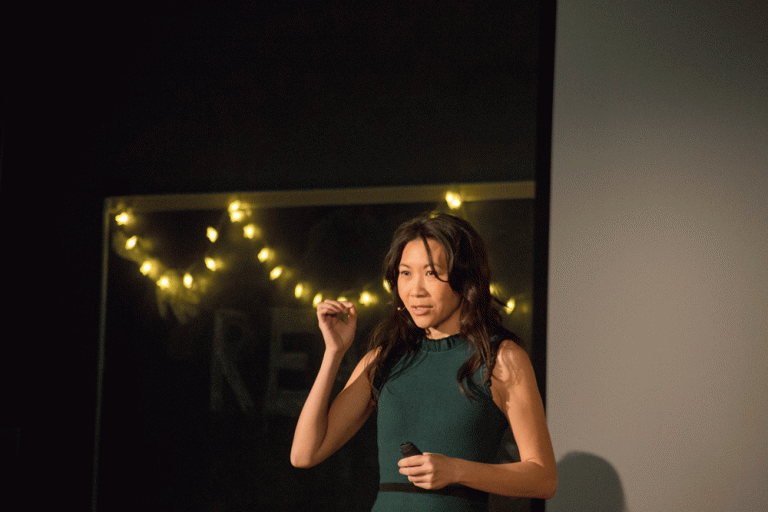
Jack Shea
TEDx UCSB enlivened the UCSB community with outstanding speakers from across the career spectrum on Jan. 28. Focusing on “reach” as the theme, the seminar aimed to encourage UCSB students to strive for exponential growth in professional, personal, and environmental realms.
TEDx UCSB focused on grand and small scale innovation. For example, Lilly Tam, a Ph.D candidate in education at UCSB, championed research on language and processing styles “embedded in our consciousness” to help “all walks of life.”
Tam argued there are two types of speakers, literal and inferential. Literal speakers believe direct and clear verbiage conveys ideas most effectively while saving time. Inferential speakers prefer to take more time analyzing information. They prefer using more creative ways to describe what they think, see, and hear.
Tam urged the audience to “blend” speaking styles, which promotes healthier relationships and better communication between individuals and their societies. Addressing multiple styles of speaking breaks down barriers to interaction through “effective and engaging” communication that supports more people’s needs.
“Right now, in our world and our country, there is so much miscommunication,” said Tam. Using “ambidextrous” communication styles, as Tam coined, will improve communication at every level of society. Moreover, communication has the power to dismantle individual and societal conflicts. UCSB students can start attacking societal conflicts by improving their communication skills and sharing these ideas with their own communities beyond campus.
Tam’s talk inspired TEDx attendees to start lunch with their newfound communication skills.
In an interview, Matthew Luhn, an established storyteller, writer for Pixar, and speaker at TEDx, explained his journey into a career centered on storytelling. When asked about his creative process, Luhn asserts, “It’s the personal experience that inspires me.”
Through his storytelling, Luhn seeks to convey emotions that resonate with many people. He clarifies, “Look at Google. When they started off, they wanted to make information accessible to everyone… to really change things… They want their consumers/their audience to feel [what’s important to themselves].”
Luhn uses his creativity, which comes from his own experience inside and outside work, in his mentoring of CEO’s, fellow writers, and movie directors. He believes “stories have the power to change the world.”
Using this ideology has made Luhn one of the most successful writers of his generation. Luhn has worked with Google and Pixar, for example. He would not give specifics on exactly with whom else he has worked except for the famous Steve Jobs. He did, however, give an example of an unnamed—for current work reasons—CEO who was “most passionate about” computers and problem solving as a child.
Luhn discovered that Sherlock Holmes was his favorite literary character throughout childhood. “It helped me take that passion as a kid… to see that Sherlock Holmes digs through problems to problem solve,” said Luhn.
Luhn tries to use this same tactic with all his mentees. He stated, “When the CEOs are following their passion or their vision, it affects everyone below them… I try to figure out that one thing that they are most passionate about.”
Using this passion, Luhn changes the top performer outlook of the CEOs from money first to enlightenment. He helps them find what matters to them and, perhaps, others. Jaw-dropping to some of the CEOs, when they implemented some of their childhood dreams into their work environments they created happier settings for themselves and the people under them, increased sales, and left the doors open to endless opportunity.
Luhn’s creative vision for his work and mentees was a suitably “reaching” theme for TEDx UCSB 2017. Speakers shared their groundbreaking research on everything from linguistics to environmental evolution. Regardless of interests or current place in academia, TEDx UCSB appeals to a wide range of UCSB students.
“I want to do this because I’m passionate about UCSB helping to create a community of thinkers and doers,” said Zach Sawaya, lead student coordinator of TEDx UCSB. “My experience is that working with these professors is pretty cool… I wish I would have talked to professors more.”
If anything, professors at TEDx UCSB give students an informative reminder as to why they are at one of the top universities in the world.










